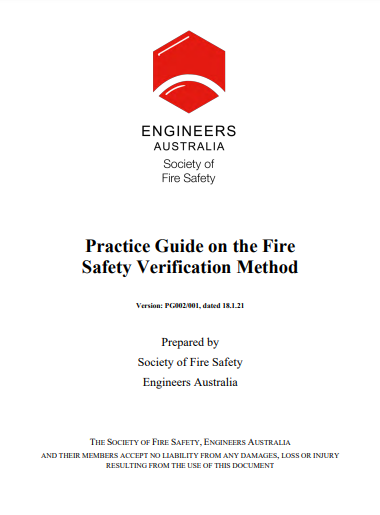The Society of Fire Safety (SFS) exists to foster excellence in fire safety in Australia. As a learned society we provide leadership in the understanding, development, practice and application of fire safety engineering.
Our objectives
- develop and extend the science and technology of fire safety engineering
- promote excellence in the practice of fire safety engineering
- promote the use of fire safety engineering in the built environment
- promote education, training, and research in all aspects of fire safety engineering
- maintain and improve professional and educational standards for fire safety practitioners
- influence community, corporate and regulatory attitudes and practices in relation to fire safety
- collaborate with and communicate knowledge about fire safety engineering with members, organisations and other societies
- provide expert advice for government, industry and the community.
We engage with our members, organisations and other societies through technical meetings, courses and special events such as conferences and seminars. We also produce and publish members’ learned papers and write and circulate a national newsletter.
The SFS also acts as a specialist resource for research working groups and in the preparation of codes and standards.
Leadership
Current national executive members are:
- Sarnia Rusbridge FIEAust CPEng NER – Chair
- Kjetil Pedersen FIEAust CPEng EngExec NER – Deputy Chair
- Dr Jonathan Barnett FIEAust CPEng NER – immediate past Chair
- Stephen Burton FIEAust CPEng NER
- Pauric McCaughey MIEAust CPEng NER
- Kate Nguyen MIEAust CPEng NER
- Jack Partridge MIEAust CPEng NER
- Tim Shiu MIEAust CPEng NER
- Blair Stratton FIEAust CPEng NER
- Alan Wilson MIEAust CPEng NER
- Pelle Zetterstrom MIEAust CPEng NER
The SFS Hall of Fame honours individuals who have made outstanding and lasting contributions to the theory or practice of fire safety engineering.
Current members of the SFS Hall of Fame are:
Inducted in 2014
Dr Ian Thomas
Mr Peter Johnson
Dr Ian Bennetts
Inducted in 2011
Professor Vaghan Beck
Dr Martin Cole
Mr Claude Eaton (late)
Dr Caird Ramsay
To learn more about the SFS Hall of Fame or to nominate someone, please email us for information.
SFS membership is open to any fire safety practitioner who’s actively engaged in fire safety. You don’t need to be an engineer or a member of Engineers Australia to join.
To join SFS login or create an account in the member portal. Once you’re logged in, click on the products and services tab then click Join on the Technical Society Membership tile and follow the prompts to apply.
Engage with us
Join EA Exchange to view all SFS resources including presentations, publications and fire safety practice guides. You can also network with other technical society members on this interactive forum.
If you’re on LinkedIn you can also join the SFS LinkedIn Group.
Our publications
Design fires
This practice note is a supplement to the International fire engineering guidelines for fire safety engineers to derive design fires and design fire scenarios in a consistent manner.
Facade and external wall fire safety design
The guide provides a fire risk assessment methodology for suitably qualified and competent professionals to determine the potential hazard of fire spread via the facade of existing buildings. It offers a pathway to deliver a risk assessment appropriate to the situation being assessed and enables a level of safety to be defined, from which the assessment goals can be set and agreed with building stakeholders.
Fire and life safety in existing buildings during construction
This practice note provides guidance for the development and implementation of the fire safety strategy where continued occupation of an existing building is permitted while construction or refurbishments works proceed.
Fire safety in partially occupied buildings
This document is designed to provide guidance regarding fire safety in partially occupied buildings.

Guide on the fire safety verification method
This guide is designed to assist professional fire safety engineers, project certifiers, design teams, approval authorities and stakeholders with the practical and appropriate use of the Fire Safety Verification Method (FSVM) as contained in Schedule 7 of the National Construction Code, Volume 1, Building Code of Australia 2019, Amendment 1 (NCC).
